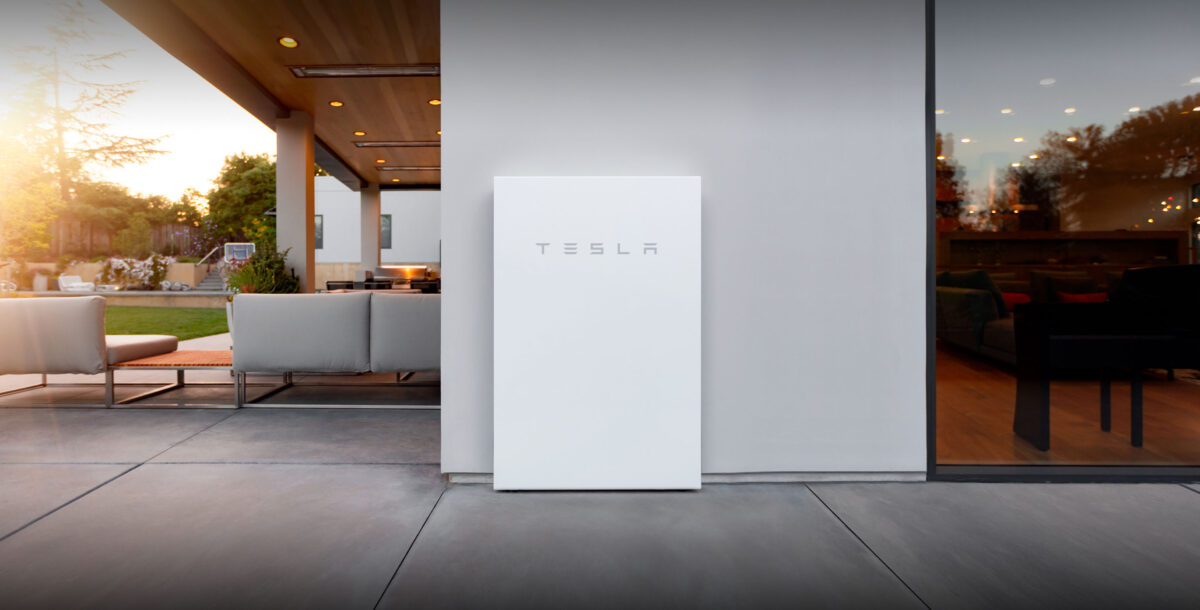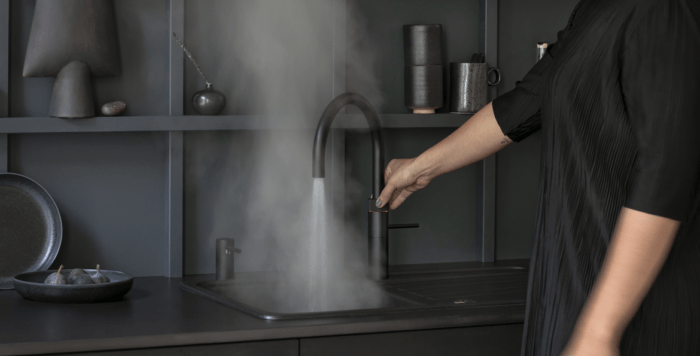How to save energy at home and reduce bills
With energy costs sky high - and about to go up again - we've brought together some great ways to cut your energy bills
Under the energy price cap, energy prices, which are already painfully high, go up again on 1 January 2024. From the start of the new year, the energy price cap goes up by 5% (from £1,834 a year to £1,928 for a typical household using gas and electricity and paying by direct debit). These figures is based on the following unit prices:
| Prices for customers on a standard variable tariff (default tariff) | Energy price per unit 1 January to 31 March 2024 |
| Electricity | 28.62p per kWh
53.35p daily standing charge |
| Gas | 7.42p per kWh
29.60p daily standing charge |
Given these prices, let’s have a look at some ways we can cut our energy bills.
Unplug devices
Stephen Day, Co-founder of iHeat online boiler installation company, says: “One of my favourite tips to reduce your energy consumption is to get unplugging. It’s not just about turning off devices; it’s about disconnecting them from their power source entirely when not in use. Doing this will help you avoid ‘vampire energy’ loss, a term for the power your devices consume even when they’re off but still plugged in.”
“While items like your microwave, and games consoles will usually only use around 0.3W to 3W while on standby, this cost can add up as homes have around 10 to 15 items on standby on average, when you factor in things like your kettle and even speakers. Over a year, this could cost you an extra £30 to £60 in wasted energy, so it’s definitely worth taking a few seconds to plug or unplug your devices whenever you go to use them.”
Switching the power off at the mains has the same effect. The only exception to the rule is digital TV and satellite boxes: it’s probably worth leaving those on standby so you don’t miss out on software downloads and scheduled recordings. And, be careful when turning off ovens, as you often have to set the clock when you turn them back on to make all of their features work correctly.
Switch the light off
It’s basic stuff, but remember to switch off the lights when you leave the room. (And nag the kids to do the same.) If you – or your family members – tend to forget to switch off electrical appliances, you can also invest in timer switches (about £5 for the mechanical ones or £10 for digital ones) to make sure things do get turned off. If you have smart lighting, such as that from Philips Hue, you can add motion sensors that will turn lights on and off automatically.
Don’t forget about dimming your lights, either. Turning the brightness down, will cut the cost of your lighting, so drop the brightness when it’s comfortable to do so. If you have LED bulbs, make sure that they support dimming, and that you have compatible dimmer switches.

Image credit: Pexels/Zain Ali
Switch to LED bulbs
LED bulbs are the cheapest to run, and typically use just over half the power of a CFL energy-saving bulb. For example, a 15W CFL bulb can usually be replaced with a 9W LED bulb. Assuming that a light was used for two hours per day, over a year the CFL bulb would cost £3.13 a year to run; the LED bulb would cost £1.88. You get even bigger savings moving away from halogen or traditional bulbs. Even taking into account the fact that LED bulbs cost slightly more to buy, you’ll easily recoup the cost, and LED bulbs also last a lot longer.
Don’t fill the kettle

Image credit: Pexels/Ready Made
Stephen Day says, “Another simple yet effective trick is to be mindful of your kettle habits. It sounds trivial, but boiling only the water you need can save a surprising amount of energy. Most kettles use a 3kW element to heat water, with an average cup (250ml) taking around 45 seconds to boil in a 3kW kettle, meaning it costs around 1p for a cuppa with the current energy rates (27p/kWh for electricity). With an average kettle able to boil around 1.7 litres of water in about four minutes at max capacity, this means you can expect to pay around 5p to boil a full 3kW kettle, meaning you waste 4p if you only use enough for one cup. This means, if you have an average of two cups a day and boil the whole kettle each time, you could end up wasting 8p a day, or £29.20 a year.”
Don’t be fooled by ‘energy saving’ kettles that have a lower-power element, such as 1.8kW: all this means is that it takes longer to boil water, but the total energy consumption is the same. If you’re buying a new kettle, look for one with a lower minimum boil. A typical kettle will need 500ml of water, but some models reduce this to 250ml. Why not get a variable-temperature kettle? Heating water to lower temperatures saves money, and means you can have the right temperature for the drink you’re making.
Use the dishwasher
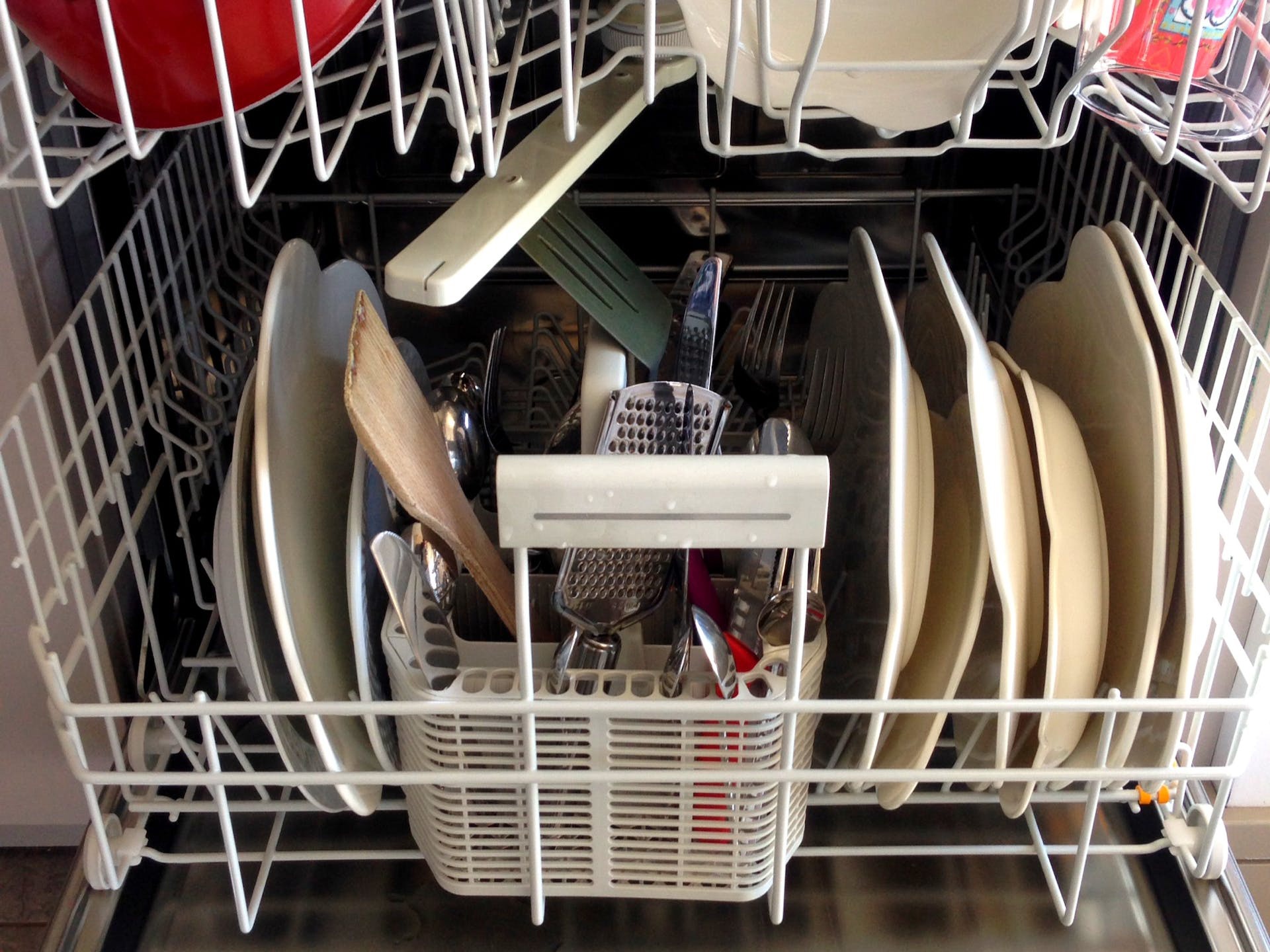
Image credit: Pexels/Devilishly Good
The folks at Lookaftermybills.com have crunched the numbers, and it turns out it’s cheaper to use the dishwasher than to wash up by hand. That’s providing you only use the dishwasher when it’s full, stack it correctly, and use an economy or eco cycle. The Energy Saving Trust also points out that cutting back your dishwasher use by just one cycle a week for a year could save you £13.
Use the microwave
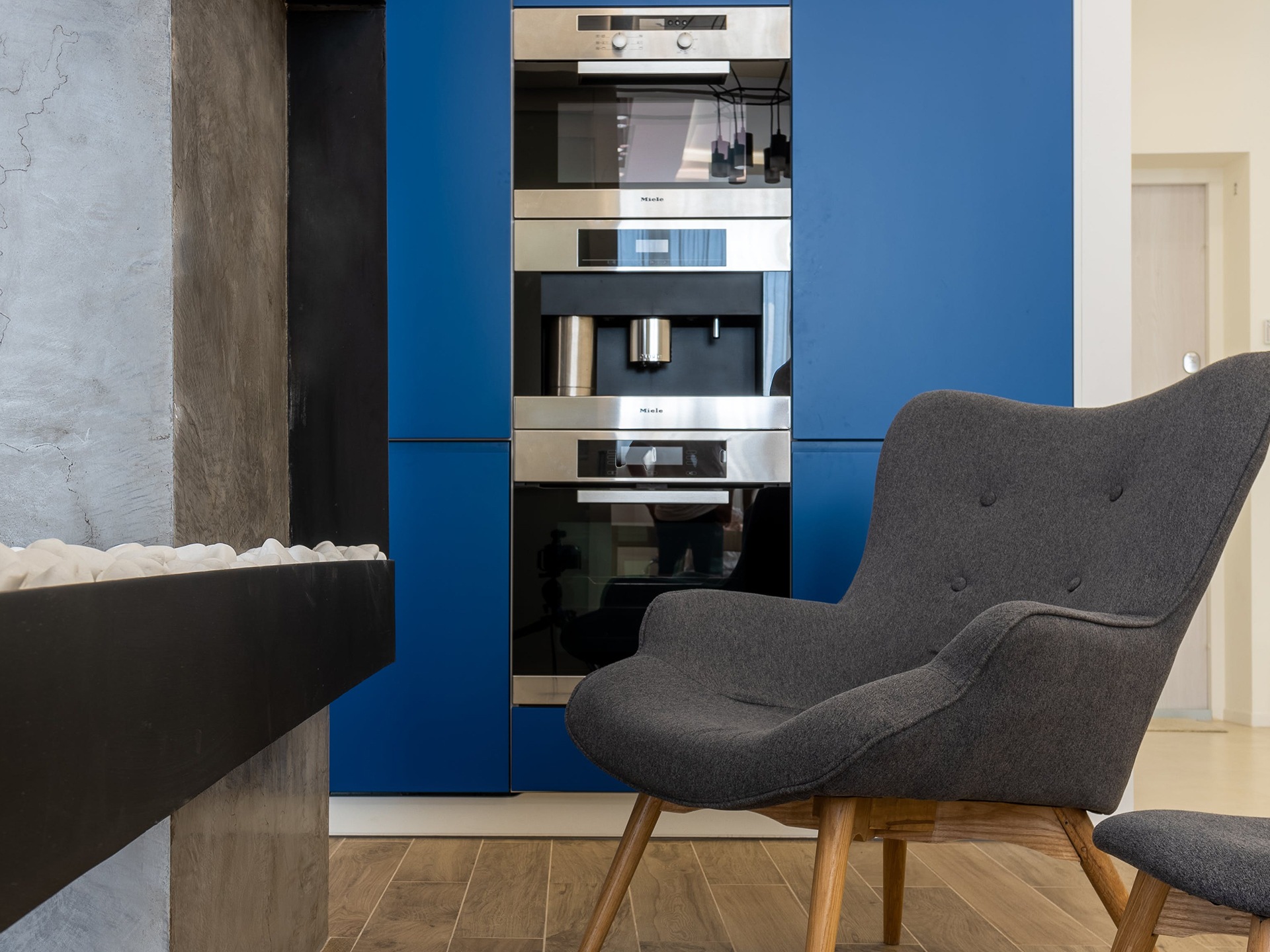
Image credit: Pexels/Rahubovskiy
The microwave is generally a cheaper way to heat food than the oven because you’re only heating the food itself and not all the air around it. The wattage of the microwave makes a difference to how much it costs to run, although the higher the power, the quicker the heat-up times. When you do use your oven, try to fill it up and cook several things at the same time if you can. The Money Edit has done a deep dive into microwave vs oven costs here.
If you have a smaller combi microwave oven, this will be cheaper to use if you’re only using one shelf; save your big oven for when you need its full capacity.
Use an air fryer
An air fryer is an intensive mini oven that uses a fan to circulate heat. Because of these factors, air fryers warm up quicker and cook faster than an oven, which can save money. However, this is only true if you can cook everything in one batch, and that’s not always possible as air fryers are much smaller than ovens. If you have to cook multiple batches, say of chips, in an air fryer, it would be cheaper to use an oven instead.
Cool wash
Gareth Kloet, energy expert at Go.Compare, says: “Using your washing machine at a lower temperature can help reduce the cost of your total energy bill cost by 14%. Simply halving the temperature of your wash from 40°C to 20°C can reduce the running costs of your machine by a huge 62%.” Similarly, the Energy Saving Trust calculates you can save around £27 a year by using your washing machine more carefully ie 30°C cycles instead of hotter programmes and running it once less a week. Make sure you use your machine’s most efficient cycle: all new washing machines have an Eco 40-60 programme that saves money.
Turn off the tumble dryer
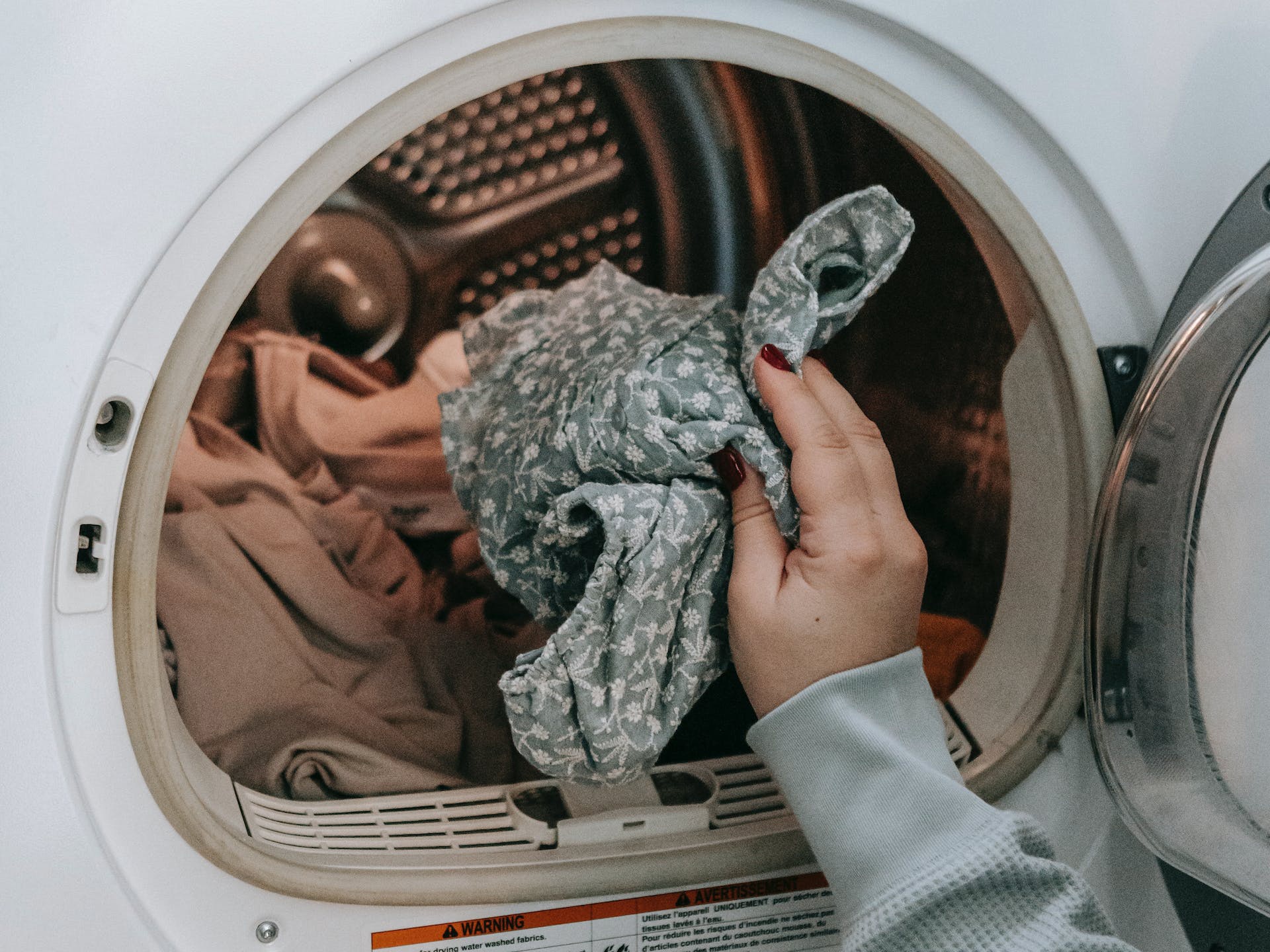
Image credit: Pexels/Sarah Chai
Tumble dryers use lots of power. Avoid using yours in summer by hanging your washing to dry outside instead. In winter, it might be better to use your tumble dryer than risk creating condensation and damp by drying clothes on radiators. Heated clothes airers can be cheaper to buy and run than tumble dryers, but they also create a lot of humidity. If you’ve got an old vented tumble drier, upgrading to a modern heat pump drier can dramatically save on running costs.
Buy energy-efficient appliances
Gareth Kloet reminds us of the importance of picking energy-efficient appliances when the time comes to replace your household white goods: “The energy efficiency of appliances will play a role in how much energy is used, so, if you are purchasing a new appliance, take its energy efficiency rating into consideration.”
The Energy Saving Trust puts some concrete figures to this idea, explaining that choosing an A-rated fridge-freezer over a F-rated one will save you about £580 (and 610kg CO2e) in energy bills over a 17-year lifetime of the product.
Another thing to consider when buying replacement appliances is size: would a smaller unit, which could be cheaper to run, do the job perfectly well?
Take shorter showers
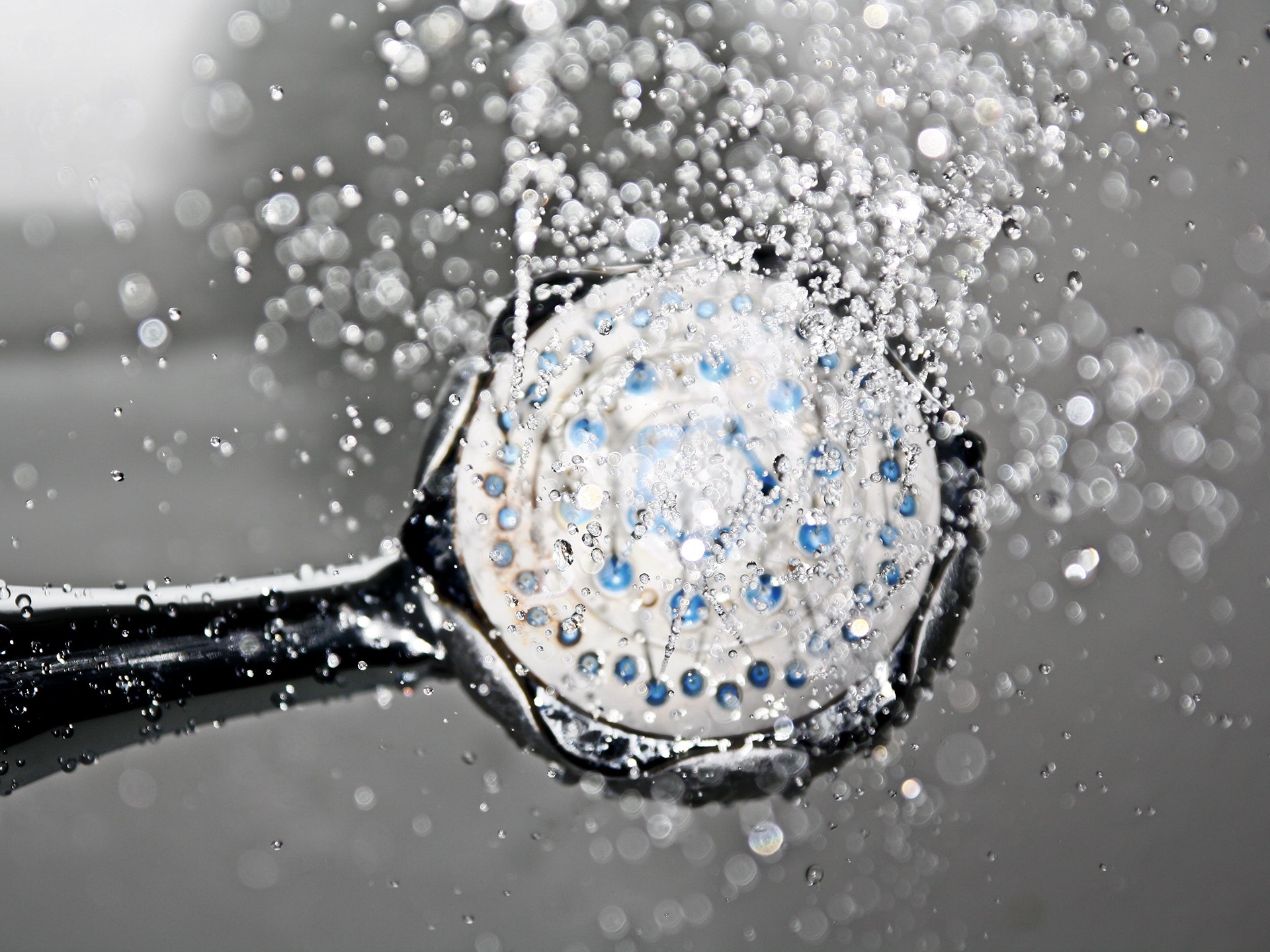
Image credit: Pexels/Pixabay
According to the Energy Saving Trust, cutting your showers down to just four minutes could save the typical household £65 a year. Baths are generally cheaper than showers, unless you cut the shower down in length. (Saga Exceptional did the calculations on this one, here.)
ShowerBob makes nifty little shower timers to remind family members to keep their time in the shower to a minimum. They also sell eco showerheads that subtly reduce the flow of water coming through the shower.
Use thick curtains

Image credit: Pexels/Nataliya Vaitkevich
Thick curtains or curtains with a thermal lining are a great way to keep the heat in, and therefore cut energy bills. Remember to shut them as soon as it gets dark in winter.
Install draught excluders
Get or make yourself an old-school long, thin draught excluder to run along the bottom of draughty doors. They are super easy to make with even basic sewing skills, and you can stuff them with old clothes, such as odd socks. There are lots of tutorials on YouTube showing how to make draught excluders.
Understand your energy usage
“Smart meters are an informative and easy way to understand your energy consumption. It makes it easier to see what appliances are consuming the most energy and therefore how you might be able to reduce it,” says Gareth Kloet.
Use the data that so many of us now have available on our smart meters. If you haven’t got a smart meter yet, talk to your energy supplier, as they are available for free. You can check whether your smart meter is working properly using the online smart meter checking tool.
Compare tariffs
You can use the information from your smart meter and bills to help you decide what is the right tariff for you. Comparison sites like Go.Compare allow you to shop around for different energy suppliers and tariffs. You might be able to find a better deal, or maybe you are just looking for a supplier that generates more of their power from renewable sources?
Gareth says: “In the last few months, there has been a slow but steady return to the switching market, with several fixed-rate tariffs available for those looking to protect themselves from the unpredictability of the energy market. Think about your household’s energy consumption and needs before you switch. A comparison site will help you to see the different options in a simple way so you can find out if there is an option on the market that works for you.”
At the moment, the cheapest rates from most suppliers are the ones on the price cap. But some providers do offer time-of-use tariffs that charge you a different amount for your power depending on when you use it, with cheaper rates at off-peak times. Use a comparison site to check out these deals, and, if time-of-use looks like it might suit you, set yourself up with some timer switches to schedule your high-running-cost appliance use at off-peak times.
Get an EV tariff
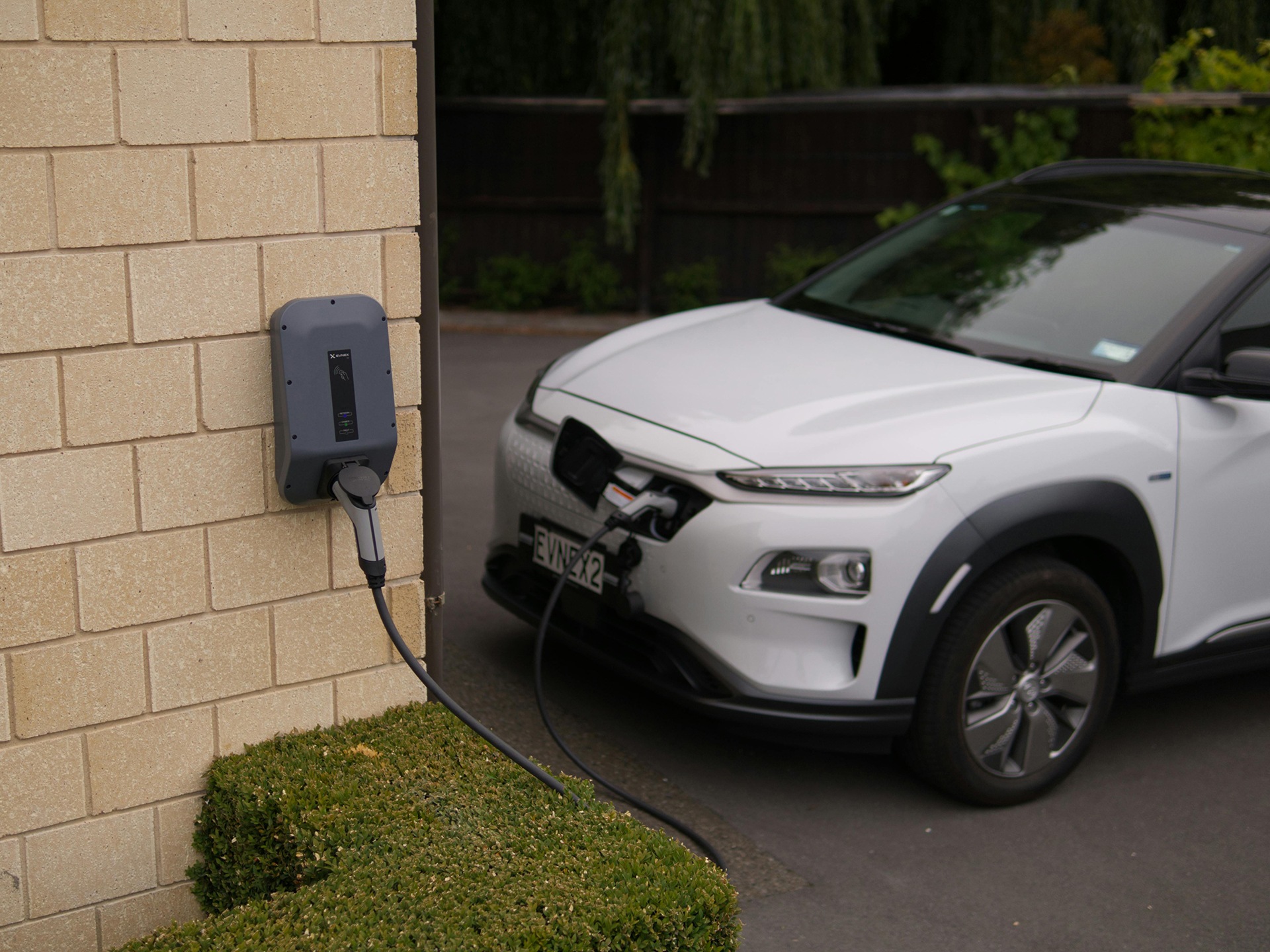
Image credit: Pexels/Ed Harvey
If you’ve got an electric car, switching to a special EV tariff could save you a decent amount of money. These tariffs work a bit like other time-of-use tariffs, and the idea is you charge up your car off peak. The bonus is, there are no restrictions on what you can use the cheaper off-peak electricity for, so you can schedule your appliances to make use of the cheaper power too.
There are things you may need to do to qualify for the account, eg prove that you have an EV (and not all EVs qualify), have a smart meter, etc. Some EV tariffs are only available to existing customers, so you might have to swap to the energy company first and then choose the EV tariff as soon as possible. But, if you have an EV and your schedule permits you to charge it at night, an EV tariff could be a great saving for you.
Install a heat pump
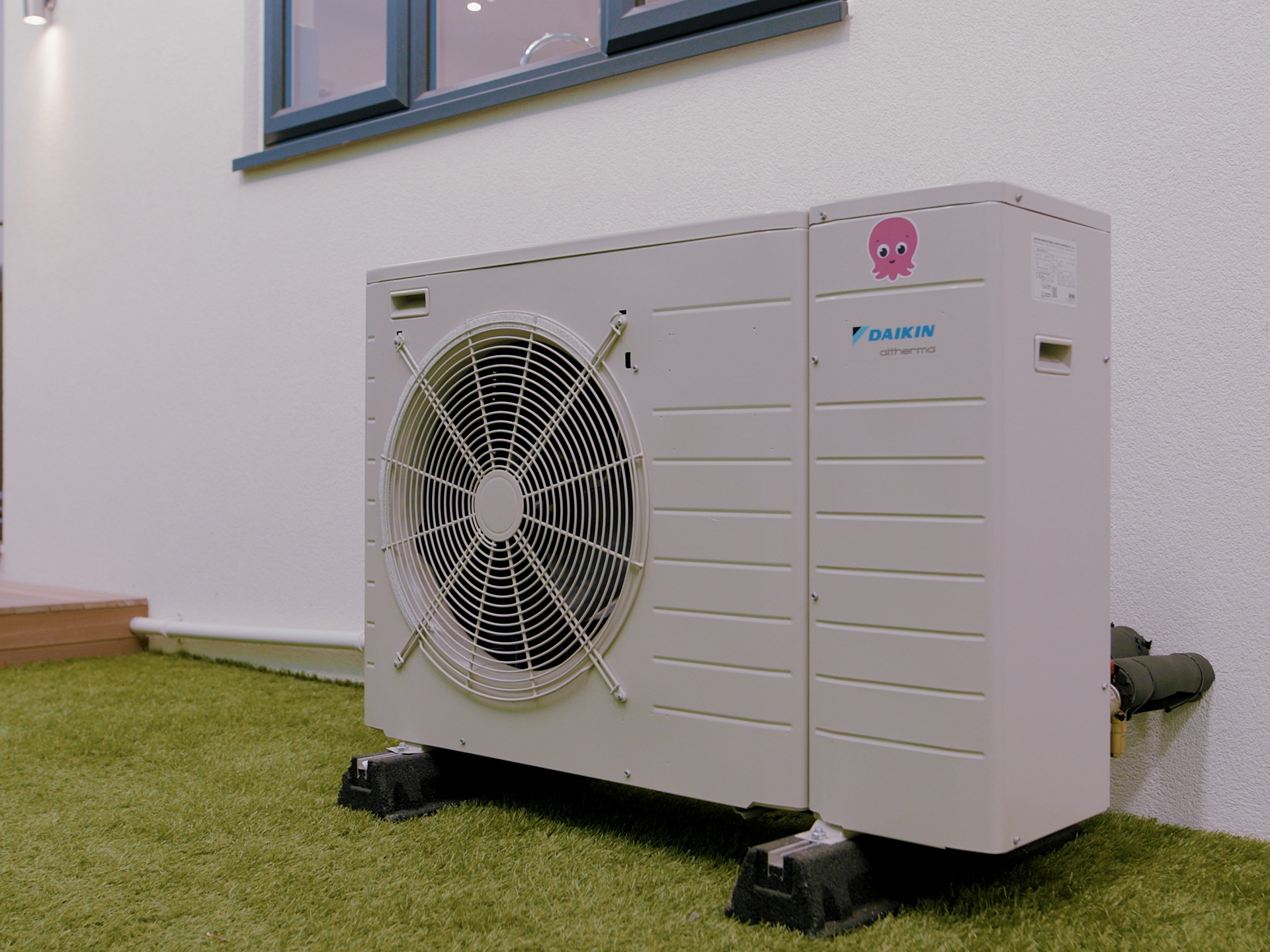
Image credit: Octopus Energy
A grant from the Boiler Upgrade Scheme (BUS) could help you replace your fossil fuel heating system (such as a traditional gas boiler) with a more environmentally friendly heat pump or biomass boiler – and potentially save money at the same time. Jon Bonnar says: “We’ve seen our clients save approximately 10% off their gas heating bills over a year, after installing a heat pump. Installing a heat pump can also increase the value of your home, with research by Savills revealing homes with heat pumps can command a premium price. Plus, as heat pumps capture heat that already exists rather than generating new heat, the system doesn’t require fuel or emit any carbon dioxide – a huge win for the environment.”
Under the BUS scheme you can get one grant per property, which could include one of the following:
- £7,500 towards an air-source heat pump
- £7,500 towards a ground-source heat pump (including water-source heat pumps and those on shared ground loops)
- £5,000 towards a biomass boiler
To be eligible for BUS, you must own the property you’re applying for and be replacing a fossil-fuel heating system using oil, gas or electricity. You can still receive the grant if you’ve previously received other funding to improve the energy efficiency of your home. Apply for the Boiler Upgrade Scheme via the government website.
The economics of heat pumps vary from property to property, and pump to pump. Even with the grant, you might need to contribute significantly to the installation costs, depending on the type of pump you go for. Our deep dive on heat pump running costs tackles what is a complex topic.
Get solar panels
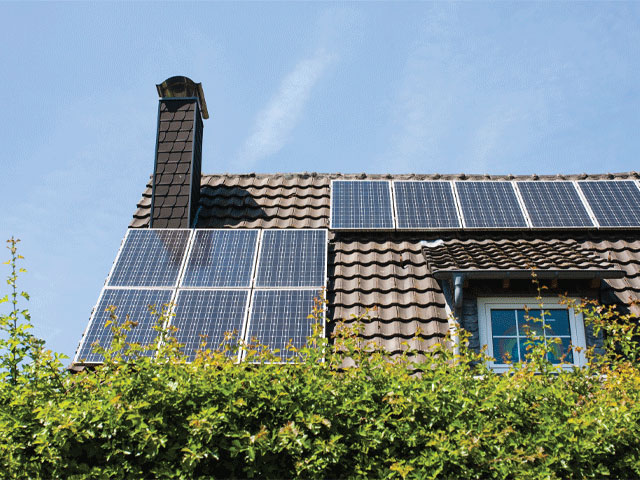
Image credit: Wirestock/Adobe
According to Geo Green Power, a solar photovoltaic (PV) system will typically pay for itself in about five to seven years. Properties that use a lot of power during the day and that have space to fit solar panels in full sun will benefit the most. Geo Green Energy calculate: “To give a rough average, 10 panels can generate about 3,500kWh a year – which could save you upwards of £1,000 a year on bills – and saves one tonne of CO2 a year.” We’ve got everything you need to know about solar panels here.
Buy a battery
Battery technology is improving all the time, and, if you do have solar panels, it might now be worth investing in a purpose-made battery such as myenergi’s libbi to store the power you generate so you can use it when you need it. Again, it’s a subject that needs careful consideration of costs vs benefits, so check out our recent exploration of this complex topic.
Turn down your thermostat

Image credit: Adobe
Last but not least, turn down the temp a little. Turning down the thermostat just one degree, could see a cost saving of as much as 10%.







